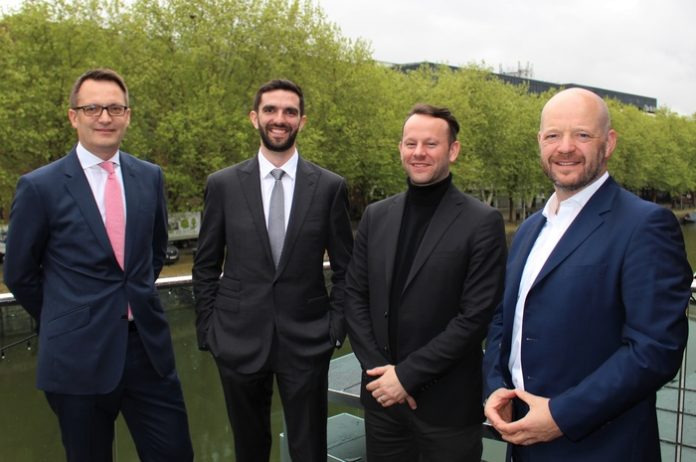
The market dynamics of the Bristol occupational and investment markets have remained very positive despite the uncertainty created by Brexit and other wider global economical concerns, according to Cushman & Wakefield.
The findings were presented at Cushman & Wakefield’s annual Property Outlook event for the Commercial Property Market for 2019 and beyond held at the Watershed in Bristol.
Nick Allan, International Partner, Capital Markets said: “The imbalance between supply and demand for all the major markets, apart from retail, combined with limited development has driven record rental growth and significant domestic and international capital flows into the city and region’s investment markets. We currently have the lowest office vacancy rate in the city’s history standing at 3.5%, rental growth for Grade A space has been 23% over the past 12 months and yields have hit their lowest level at 4.75% as witnessed at the Aurora building in Finzels Reach. All of which has provided confidence to AXA Real Estate/Bell Hammer and Royal London to speculative develop their respective sites which will deliver just under 290,000 sq ft in the city centre, some of which is already under offer.
“On the industrial front we are witnessing a wave of significant speculative development in the city region for the first time in over a decade including the likes of More+, Horizon38 and Western 105. This has been fuelled after the market experienced its lowest vacancy rates and record rents, following major developments like Amazon’s 1.3 million sq ft, The Range’s 1.2m sq ft and Lidl’s 550,000 sq ft facilities.
Nick added: “The University’s new Temple Quarter Enterprise Campus is creating an early and significant catalyst to the city’s gravitation to the East, which has triggered significant developer interest in the location for a variety of uses including Build to Rent, Student Accommodation and Offices. The investment market also continues to see strong interest on ‘Beds (hotels, build to rent, student accommodation), Sheds, Offices and Alternatives’, with retail heavily out of flavour.”
There were also presentations from Greg Mansell from Cushman & Wakefield’s UK Capital Markets Research team who discussed ‘Opportunities Amidst Uncertainty’. He highlighted that despite concerns over Brexit and Global trade, UK business has ‘held its nerve’.
Greg Mansell said: “The impact of Brexit on UK financial services and real estate has been over-stated with fewer firms relocating staff into EU countries than had been forecast. The threat of trade wars and protectionism is likely to have a far greater impact on the real estate sector, although Brexit may cause short-term disruption.”
He continued: “As Brexit and other sources of uncertainty dominate the headlines, we can get fixated on the ‘here and now’ but real estate is a long-term game.
“Over the coming years, there are many non-cyclical trends that will create opportunities for investors and occupiers who stay ahead of the curve. These trends will be in place regardless of global trade volumes, Brexit or any other external force.”
These opportunities include the next generation of tenants, the rise of Coworking and Alternative real estate, such as healthcare and student living, which accounted for an all-time high of 32% of regional investment volumes in 2018.
Greg concluded: “Markets that have strong fundamentals will stay popular with core investors. Meanwhile, the more challenged parts of the market will see pricing drift until they look good value for opportunistic investors looking to redevelop and repurpose assets. There is plenty of capital looking for these opportunities.”
Richard Pickering, Cushman & Wakefield’s Head of Futures Strategy concluded by discussing the impact digitisation will have on real estate over a longer horizon. He considered the potential for activities currently carried out using real estate to be substituted by digital alternatives, and posed the question, ‘Could this mean the end of real estate?’
“In short, no,” said Richard “however, we in the industry need to treat this as a wake-up call. The same trends we see today in retail, have the potential to bleed into other sectors. Digital business models tend to have cost and convenience advantages. This sets a challenge for real estate investors to reposition their assets and portfolios to focus on real estate’s inherent strengths, such as end-user engagement and experience. For the best innovations in this space we need to look increasingly outside of our industry, and be willing to challenge long held paradigms of the role of real estate.”
The presentations were concluded with an update from Barra Mac Ruairí, Chief Property Officer at the University of Bristol on the new Temple Quarter Enterprise Campus. Barra discussed the development and enterprise opportunities that the Campus will bring to the city, whilst tackling one of the most complex regeneration sites in the region. He said: “This will be one of the most significant schemes both in terms of scale and investment in the city for many years.”


















